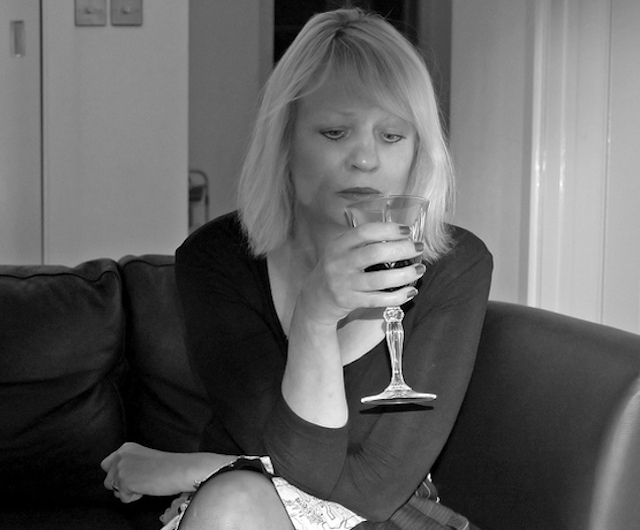
When my mother went to rehab, I didn’t understand.
My mother. My beautiful mother who never smoked. Who cooks homemade food. Who doesn’t believe in low-fat diets. Who gets up at 6 a.m. every day.
My mum had always struggled with her mental health; this was not news to me. I started to understand this fully at about the age of 21, when the rose-tinted spectacles we tend to see our parents through often get sat upon and irreversibly bent. That time when we begin to separate and understand that our parents are not superhuman, they’re just people, with their own struggles and insecurities. That time when we start to feel guilty for all the times we put them through sh*t with our sh*tty attitudes and the sh*tty things we said or did.
I remember this retrospective understanding of my mother hit me quite hard as I looked back on behaviours, memories, and incidents of the past. These things seemed to make sense in a new way that felt, at first, out of place and uncomfortable. My stubbornness to see the real her, even as I grew older, seemed proportionate to her will to conceal the parts of herself she felt ashamed of.
I didn’t want to see these things, but slowly I began to see my mother as someone just like me: full of flaws and vulnerabilities.
But even with this knowledge, I was totally unprepared for the news that my mother was going to rehab.
Rehab. Rehab? That’s for drug addicts. People who shoot heroin and live on street corners and have bad teeth and don’t wash. People who are a trainwreck of a mess.
As stereotypical and shortsighted as it is, these are the thoughts that came into my mind before I could even think them.
Mostly, that my mum did not belong there. That she was not one of them.
Why the hell is my mum going to rehab?
My “not getting it” is important, because it has changed the way I understand addictions and mental health, and it has changed the way that I understand people.
We’ve all heard that drug addicts or alcoholics are just normal, everyday people (of course they are, what else could they possibly be?!), and we can nod our heads in complete agreement as if this is so bloody obvious that it doesn’t even need to be said. And it doesn’t—but also, it does.
There is such a stigma attached to those two words used in conjunction: “drug” and “addict.” It brings to mind a certain stereotype, so ingrained in the subconscious of popular culture, it need not even be explained. This image flashes in our mind, and before we have even chosen to pass judgement, we have done so. This is a problem because it cordons off our empathy. It short-circuits our vision, and makes us pretty damn ignorant.
I was ignorant.
My mother had always enjoyed a glass of wine or two in the evening. It used to be a joke in our house that mum would end up with about three different glasses of wine because she was so scatty that she would drink most of one and then leave it somewhere in the house and pour another because she couldn’t find the first. Or second. Or third.
It was always red wine. She used to enjoy it in the evening as she was cooking and as we would sit down to dinner.
So, my mum liked wine. She drank it almost every evening. Big deal.
That this should classify my mum as an “alcoholic” was bewildering. She was never rowdy or aggressive or any of the other characteristics that might come to mind when someone says “alcoholic.” She would laugh and watch TV, and then go to bed ready for another 6 a.m. wake up.
Yet the truth was, she had a drinking problem. The problem was not inherent in the amount of wine she drank or her external behaviour when she consumed it. It was in the fact that she depended on it. She self-medicated with it. She used it to numb the feelings that she felt but didn’t want to. She used it to forget. To be somewhere else. Someone else.
Everyone who is addicted to a substance or an act that results in negative consequences is doing so in a desperate attempt to self-soothe. They are trying to fill up some part of themselves that is empty, or to escape from something—to feel something where there is only numbness, or to numb where there is too much feeling. Whether it is a drug or food or sex or anything else, all addictions have this in common. We don’t choose it. It happened to me with food and bulimia. And to my mum with alcohol.
When we put the words “drug” and “addict” together, there is also a subconscious assumption of weakness. This is understandable; the addict’s loss of control and disempowerment are allied with an image of a weak and will-less person. A person who repeatedly engages in an act of self-violence must surely be a weak one. Well, this is about as true as it is to say that the queen never takes a crap.
My mother is one of the strongest people I know. She is an absolute trooper. Suffering from addiction doesn’t make someone weak. It makes them in need of healing. I don’t think there is a single person in the world who isn’t in need of healing. The most important thing that sets apart a person who becomes addicted to destructive behaviours/substances, and a person who doesn’t is their ability to self-soothe—specifically their ability to do so in healthful, rather than harmful, ways.
Self-soothing is a coping mechanism closely related to resilience and autonomy. It is formed early in childhood as we learn ways to calm and nurture ourselves when we feel bad. In terms of neuroscience, these early self-soothing styles we develop lay down neural pathways that we will turn to again and again as adults when we are in need of relief. Whether we learned healthy or unhealthy ways of self-soothing is not something we really got to decide; it was predicted by the environment in which we were raised, and is intimately connected to our level of self-esteem.
As adults, our ability to self-soothe is determined by these old neural pathways. When those with a high level of self-esteem feel hurt or disappointed, they are able to give themselves the equivalent of a loving embrace—playing music, talking to a good friend, going for a walk, cooking a nice meal. They possess a deep inner conviction that they have the resources to deal with whatever it is that is troubling them, and they don’t feel the need to run from themselves. These people are able to embrace their vulnerability and give validation to their feelings, which helps to quiet their nerves and soothe their mind and body.
Yet for others, when confronted with hurt or discomfort, self-soothing comes from a place of subconscious unworthiness that turns a loving self-embrace into a kind of self-abuse and escapism. These people cannot accept their vulnerability and feel compelled to conceal their emotional susceptibilities. They feel overwhelmed by feelings that they believe are beyond their capacity to cope with, which leads to a loss of control and an engagement in harmful attempts at self-soothing that serve to suppress the self.
Both harmful and healthy ways of self-soothing will give the sense of reward that we seek, but they are not equal in value.
The bravest thing my mother ever did was to admit that she had a problem and to seek help for it. For those of us who are at peace with our vulnerability and have conviction in our coping mechanisms, it might be hard to comprehend how utterly momentous it is for someone struggling with addiction to say they have a problem and need help. But for these people, it is the first real step toward self-validation and finding healthy ways to self-soothe.
By admitting we have a problem, we are embracing our vulnerability rather than fleeing from it. By saying to ourselves and to those around us that we need help, we are making a huge step toward accepting ourselves for how we are, irrespective of the opinion of others. We are acknowledging that we have some sense of power to make a change, that there is a choice. We are starting to get back a sense of control and slowly shedding the need to conceal and hide ourselves. This allowing of ourselves to be openly in need of help amidst all the stigma and judgment that too often accompanies the term “addict” is a pretty heroic feat.
Let’s not forget that most heroes are damaged and weary and utterly confused; it is overcoming those things that makes them truly heroic.
This knowledge has changed the way that I understand all addictions, including my own experience with bulimia. If you take home nothing else from these words, let it be that all those struggling with addiction are simply in need of learning healthy ways to self-soothe—not because they are weak, because they never got a chance to develop these personal resources in their earliest experiences.
Addiction is not something we choose; it is an attempt to feel better gone horribly wrong. An attempt as justifiable as any other, but one based in faulty and unhelpful programming.
I think we all owe it to these people—to each other—to help create a culture in which addiction isn’t stigmatised or looked down upon, but one in which we can carry in our hearts and minds a real respect for those struggling with addiction. A respect based on a greater understanding rather than quiet ignorance. A respect based on the knowledge that it could just as easily be any one of us.
~
~
Author: Claire Diane
Image: Dun.can/Flickr
Editor: Callie Rushton
Copy Editor: Travis May






Read 0 comments and reply